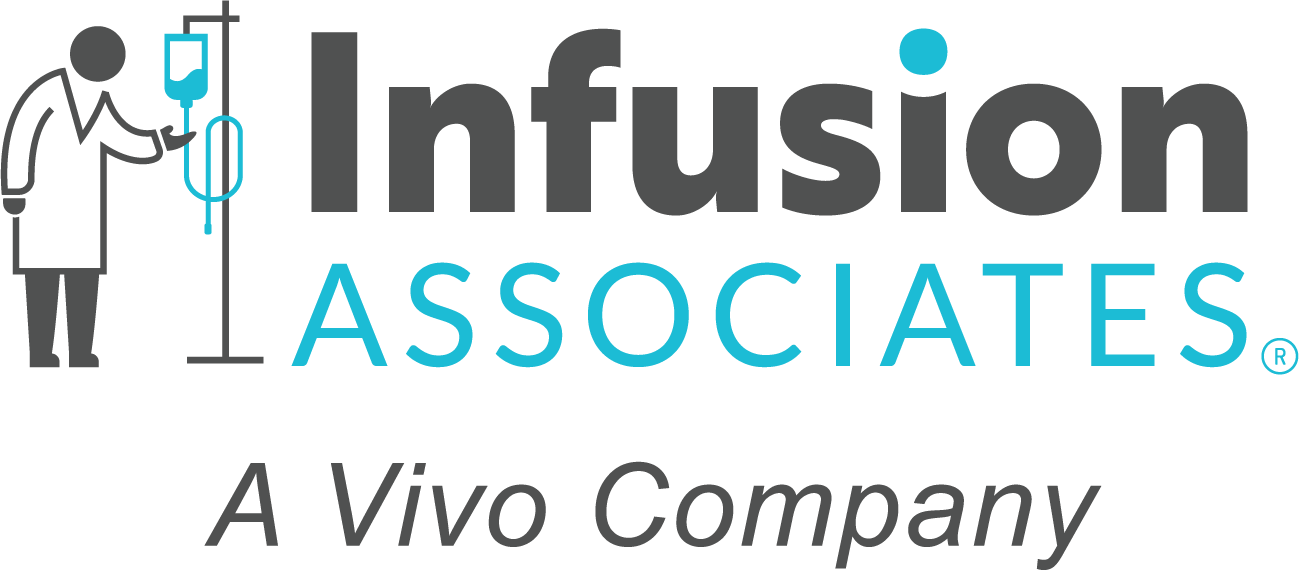Being diagnosed with any chronic medical condition is overwhelming. While finally knowing why you haven’t been feeling well opens the door to learning about treatment options, with this new chapter, you have to become familiar with a long list of medical terms. What is thyroid eye disease? Why is it treated with TEPEZZA? What is infusion therapy? Once you start getting answers to your questions, you may feel more confident about commencing treatment.
What is thyroid eye disease?
Thyroid eye disease — also known as TED or Graves’ eye disease — is a progressive autoimmune condition that occurs when the eyelids, fatty tissues behind the eyes, and the muscles surrounding them become inflamed. As a result, the eyes become red and swollen. In severe cases, you may experience bulging eyes and double vision. If the eyes are pushed forward too much, you may not be able to shut your eyes completely when blinking or sleeping. In a worst-case scenario, the inflammation may compress the optic nerves behind the eyes — which could lead to blindness.
Thyroid eye disease usually occurs in people who have thyroid disease. Additional risk factors include:
- Family history
- Smoking
- Being middle-aged or older
- Undergoing radioactive iodine therapy to treat hyperthyroidism
What is TEPEZZA?
TEPEZZA (teprotumumab) is the only medication approved by the Food and Drug Administration (FDA) to treat thyroid eye disease. It reduces eye swelling, bulging, and double vision. You’ll also experience less pain and redness from treatment. During clinical trials, patients noticed improvements within six weeks.
How does TEPEZZA work?
TEPEZZA are lab-created monoclonal antibodies (MAb) — which means they are immunity cells engineered to restore your immune system. They work by preventing blood vessel growth and blocking immune system inhibitors — proteins that stop the immune system from attacking disease.
TEPEZZA Side Effects
TEPEZZA has a risk of side effects in approximately 4% of patients. They may occur during treatment, or up to an hour and a half after the infusion has been completed. The most common ones include:
- Muscle spasms
- Muscle cramps
- Nausea
- Diarrhea
- Fatigue
- Hearing impairment
- Headaches
- Dry skin
- Changes in taste
- Hair loss
- High blood sugar
Important Safety Information
TEPEZZA should not be used by patients with inflammatory bowel disease (IBD), as it may increase abdominal cramps, an urgent need to use the restroom, and the likelihood of blood in your bowel movements.
TEPEZZA may also increase blood sugar. Therefore, if you have diabetes, talk to your doctor about any diet modifications you may require prior to beginning treatment. Also, talk to your doctor if you experience any of the following symptoms:
- Breathing difficulties
- Rapid heartbeat
- Headache
- Muscle pain
- Redness of the face
- Feeling hot
- High blood pressure
If Your Doctor Has Recommended Infusion Therapy, Let Infusion Associates Help You
At Infusion Associates, we provide medically-prescribed infusion therapy for patients with chronic conditions in a welcoming and friendly environment. Our team of healthcare professionals is committed to making the experience as comfortable as possible. We always inform patients of any potential side effects and answer all their questions before starting treatment. In addition, we have a Registered Pharmacist on staff to make the process as seamless as possible.
If you would like to refer a patient to us or want to inquire about the treatments we offer, you can contact us by calling us at (616) 954-0600 or filling out this form.

